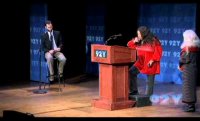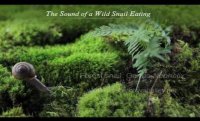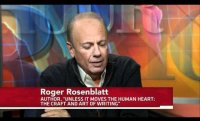While the National Book Critics Circle (NBCC) Awards shortlists, announced last weekend, have echoes of last fall's National Book Awards, the nominees in fiction were a completely fresh batch.
Receiving nods for this year's prize in fiction are A Visit From the Goon Squad (Knopf) by Jennifer Egan, Freedom (Farrar, Straus and Giroux) by Jonathan Franzen, To the End of the Land (Knopf) by David Grossman, Comedy in a Minor Key (Farrar, Straus and Giroux) by Hans Keilson, and Skippy Dies (Faber and Faber) by Paul Murray.
National Book Award winners Terrance Hayes (Lighthead, Penguin) and Patti Smith (Just Kids, Ecco) are up for the prizes in poetry and autobiography, respectively. Also called out are National Book Award–nominated poets Kathleen Graber for The Eternal City (Princeton University Press) and C. D. Wright for One With Others (Copper Canyon), as well as Anne Carson for Nox (New Directions) and U.S. poet laureate Kay Ryan for The Best of It (Grove Press).
In the memoir category, Smith’s book is up against Half a Life (McSweeney's Books) by Darin Strauss, Crossing Mandelbaum Gate (Scribner) by Kai Bird, Autobiography of an Execution (Hachette) by David Dow, Hitch-22 (Twelve) by Christopher Hitchens, and Hiroshima in the Morning (Feminist Press) by Rahna Reiko Rizzuto.
The judging committees of the NBCC will have their say this spring, but while awaiting word of the winners on March 10, here’s a look at what some critics thought of this year's notable titles before they were finalists.
"Nox is a luminous, big, shivering, discandied, unrepentant, barking web of an elegy." Meghan O’Rourke on Carson’s poetry collection, New Yorker
"If you only read one book of poetry this year, that’s not enough, but start with this one.” Craig Morgan Teicher on Graber’s The Eternal City, Publishers Weekly
"Talking to the reader as if she were sitting next to him on a bar stool, Hayes makes poems that flatter our subtlety and make unfussy the business of turning on the imagination's light." John Freeman on Lighthead, Dallas Morning News
"Turning each corner of a Ryan poem, the eye drops to the next solid, well-planked surface." John Freeman on The Best of It, Los Angeles Times
"One With Others is potent because it is alive with voices, alive with suffering, alive with a language which earmarks an era, but also a message which seeks to persist. It is also alive with an ideology of hatred that still courses through the United States today.” Steven Karl on Wright’s poetry collection, Coldfront
"For a book so relentlessly savvy about the digital age and its effect on how we experience time (speeded up, herky-jerky, instantaneous, but also full of unbearable gaps and pauses), A Visit From the Goon Squad is remarkably old-fashioned in its obsession with time’s effects on characters, that preoccupation of those doorstop nineteenth-century novels." Will Blythe on Egan’s novel, New York Times Book Review
"Some of Freedom’s sentences are so well-written you want to pluck them out, stab them with little corn holders, and eat them." Sam Anderson on Franzen's novel, New York Magazine
"Why was Freedom written?" B. R. Myers also weighs in, The Atlantic
"Grossman invites us to look beneath the shrill headlines, beyond the roadblocks, within the clenched fist — to see Israel’s predicament not as 'the situation' but as many situations, one for every person.” Donna Rifkind on To the End of the Land, Kansas City Star
"Keilson treats his characters tenderly, sympathizing with their difficulties and forgiving them their mistakes…. Keilson's work as a psychoanalyst displays an empathy and a sensitivity to suffering that are surely the equal—if not arguably the superior—of any of which a novelist is capable." Dan Vitale on Comedy in a Minor Key, which was originally published in German in 1947 (in a review that also covers Keilson’s Death of the Adversary), Three Percent
"One of Murray's achievements is to evoke the mournfully short-lived nature of adolescent forevers." Richard Eder on Skippy Dies, Los Angeles Times
"Dow’s candor seems so absolute that readers on both sides of the [death penalty] debate
can gain insight into the thought process of an experienced advocate.
His prose is captivating." Steve Weinberg on Autobiography of an Execution, Christian Science Monitor
"Hitchens’s political writing radiates anger and toughness, but his stories of his loved ones are remarkably sensitive and emotionally real.” Michael Schaub on Hitch 22, National Public Radio
"Hiroshima in the Morning is a deeply affecting record of the author’s exploration of story and memory, and an intriguing addition to existing 9/11-related books.” J. G. Stinson on Rizzuto’s memoir, ForeWord Reviews
"Just Kids is the most spellbinding and diverting portrait of
funky-but-chic New York in the late sixties and early seventies that any alumnus has committed to print." Tom Carson on Smith's memoir, New York Times Book Review
"What is truly exceptional here is watching a writer of fine fiction…probe, directly, carefully and with great humility, the source from which his fiction springs." Dani Shapiro on Strauss’s Half a Life, New York Times Book Review






![LLOYD COLE - Writers Retreat! [OFFICIAL]](https://www.pw.org/files/styles/video_thumb_medium/public/media-oembed/i.ytimg.com/vi/yyWPpToywbg/hqdefault.jpg?itok=gKEEPplB)




